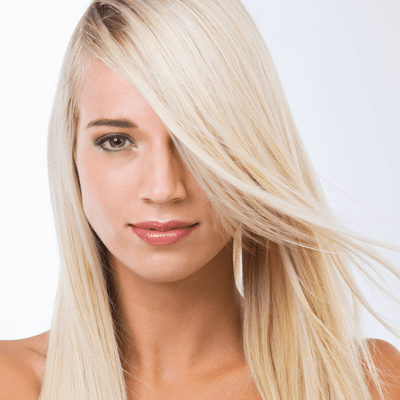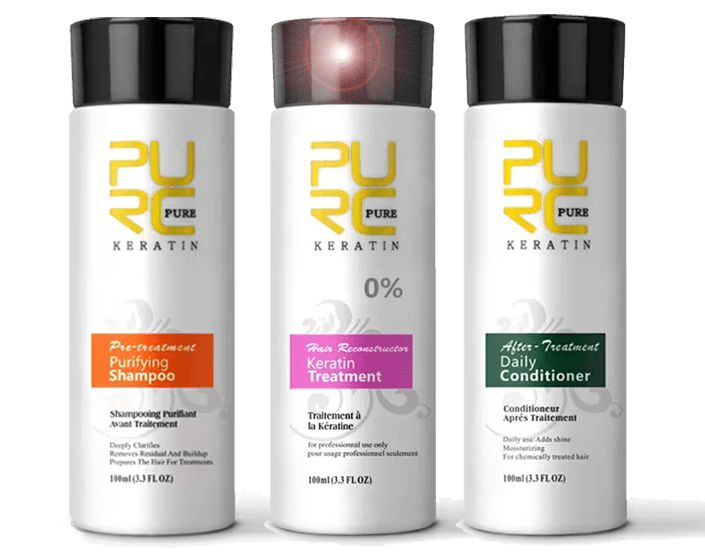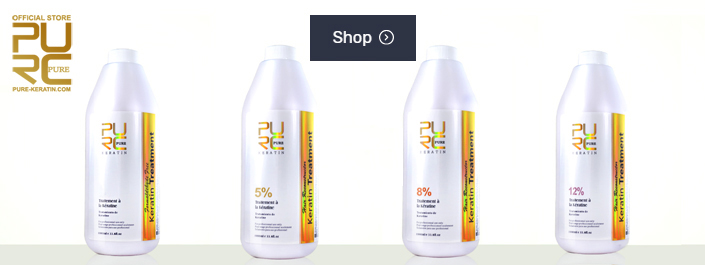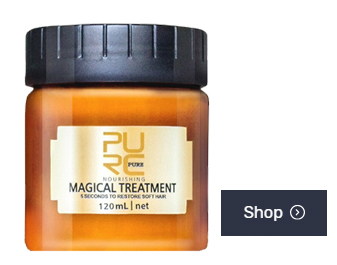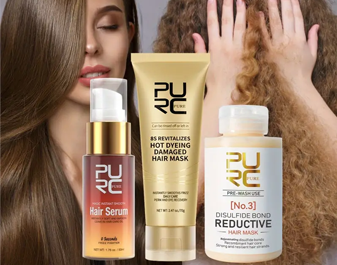Keratin Treatment for Colored Hair
KERATIN TREATMENT on 17th Jun 2024
Keratin Treatment for Colored Hair
- Introduction
- Definition of Keratin Treatment
- Importance of Hair Care for Colored Hair
- What is Keratin Treatment?
- Explanation of Keratin
- How Keratin Treatment Works
- Benefits of Keratin Treatment for Colored Hair
- Smoothening and Softening
- Reducing Frizz
- Enhancing Shine
- How Keratin Treatment Affects Colored Hair
- Interaction with Hair Dye
- Maintaining Hair Color
- Types of Keratin Treatments
- Formaldehyde-based Keratin Treatments
- Formaldehyde-free Keratin Treatments
- At-Home vs. Professional Treatments
- Preparing for a Keratin Treatment
- Choosing the Right Treatment
- Pre-treatment Hair Care Tips
- Step-by-Step Guide to Keratin Treatment
- Professional Treatment Process
- At-Home Treatment Process
- Post-treatment Hair Care
- Immediate Aftercare
- Long-term Maintenance Tips
- Pros and Cons of Keratin Treatment for Colored Hair
- Advantages
- Disadvantages
- Common Myths about Keratin Treatment
- Debunking Misconceptions
- Frequently Asked Questions (FAQs)
- What to Expect After a Keratin Treatment
- How Long Does a Keratin Treatment Last?
- How to Choose the Right Salon for Keratin Treatment
- Factors to Consider
- Questions to Ask Your Stylist
- Cost of Keratin Treatment for Colored Hair
- Price Range
- Factors Influencing Cost
- Alternatives to Keratin Treatment
- Other Smoothing Treatments
- Natural Remedies for Smoother Hair
- Conclusion
- Summary of Benefits
- Final Thoughts
- FAQs
Keratin Treatment for Colored Hair
Introduction
If you have colored hair, you know the constant struggle of keeping it healthy and vibrant. One treatment that has gained immense popularity in recent years is the keratin treatment. But what exactly is a keratin treatment, and how does it benefit colored hair? In this article, we'll dive into the world of keratin treatments, exploring their benefits, the science behind them, and how to care for your hair before and after the treatment.
What is Keratin Treatment?
Explanation of Keratin
Keratin is a fibrous structural protein that is naturally found in your hair, skin, and nails. It acts as a protective shield against humidity, the main cause of frizz. Over time, due to environmental factors and chemical treatments, the keratin in your hair can become depleted, leading to dry, frizzy hair.
How Keratin Treatment Works
Keratin treatments work by infusing your hair with this essential protein. During the process, a keratin solution is applied to your hair, which is then sealed in with the heat of a flat iron. This helps to rebuild the damaged areas of your hair, making it smooth and shiny.
Benefits of Keratin Treatment for Colored Hair
Smoothening and Softening
One of the primary benefits of a keratin treatment is that it smooths and softens your hair. This is particularly beneficial for colored hair, which can often become dry and brittle after dyeing.
Reducing Frizz
Keratin treatments are renowned for their ability to reduce frizz. The protein fills in the porous areas of your hair, leaving it sleek and manageable.
Enhancing Shine
Colored hair can sometimes look dull, especially after multiple dye sessions. Keratin treatments add a beautiful shine, making your hair look healthy and vibrant.
How Keratin Treatment Affects Colored Hair
Interaction with Hair Dye
Keratin treatments can interact with the dye in your hair. It's generally recommended to color your hair before getting a keratin treatment. The treatment can help to seal in the color, making it last longer.
Maintaining Hair Color
A keratin treatment can also help maintain your hair color. The treatment forms a protective layer around the hair shaft, reducing the risk of color fading.
Types of Keratin Treatments
Formaldehyde-based Keratin Treatments
These treatments contain formaldehyde, which helps to lock the keratin into your hair. While effective, they can release strong fumes and may not be suitable for everyone.
Formaldehyde-free Keratin Treatments
As an alternative, formaldehyde-free treatments are available. These use other chemicals to bond the keratin to your hair and are generally considered to be safer.
At-Home vs. Professional Treatments
While at-home kits are available, professional treatments tend to offer better results due to the expertise and high-quality products used.
Preparing for a Keratin Treatment
Choosing the Right Treatment
Consult with your stylist to choose the right keratin treatment for your hair type and needs. They can recommend the best option to complement your colored hair.
Pre-treatment Hair Care Tips
Before your treatment, it's crucial to prepare your hair. Avoid washing it for a few days to allow your scalp's natural oils to protect it. Also, avoid using any heavy styling products.
Step-by-Step Guide to Keratin Treatment
Professional Treatment Process
- Consultation: Discuss your hair needs with your stylist.
- Application: The keratin solution is applied to your hair.
- Drying: Your hair is blow-dried to remove moisture.
- Flat Iron: The keratin is sealed in with a flat iron.
At-Home Treatment Process
- Read Instructions: Follow the instructions carefully.
- Apply Solution: Evenly distribute the keratin solution.
- Blow-dry: Dry your hair thoroughly.
- Flat Iron: Seal the treatment with a flat iron.
Post-treatment Hair Care
Immediate Aftercare
For the first 72 hours, avoid washing your hair or using any hair ties or clips to allow the treatment to set properly.
Long-term Maintenance Tips
To maintain the effects of the treatment, use sulfate-free shampoos and conditioners. Minimize heat styling and always use a heat protectant.
Pros and Cons of Keratin Treatment for Colored Hair
Advantages
- Smooth, frizz-free hair
- Enhanced shine
- Easier styling
Disadvantages
- Can be costly
- Some treatments contain harmful chemicals
- Results may vary
Common Myths about Keratin Treatment
Debunking Misconceptions
- Myth: Keratin treatments damage your hair. Fact: When done correctly, keratin treatments can improve the health of your hair.
- Myth: They make your hair pin-straight. Fact: Keratin treatments can be customized to leave some natural wave.
Frequently Asked Questions (FAQs)
What to Expect After a Keratin Treatment
Your hair will be smoother, shinier, and easier to manage. You may notice reduced frizz and more defined hair color.
How Long Does a Keratin Treatment Last?
Typically, the effects of a keratin treatment last for about 3-5 months, depending on your hair type and aftercare routine.
How to Choose the Right Salon for Keratin Treatment
Factors to Consider
- Reputation and reviews
- Experience with colored hair
- Quality of products used
Questions to Ask Your Stylist
- What type of keratin treatment do you recommend?
- How will this treatment interact with my hair color?
- What aftercare products should I use?
Cost of Keratin Treatment for Colored Hair
Price Range
The cost can vary widely depending on the salon and the specific treatment, typically ranging from £100 to £300.
Factors Influencing Cost
- Salon location
- Stylist's expertise
- Type of keratin treatment
Alternatives to Keratin Treatment
Other Smoothing Treatments
Consider alternatives like Brazilian Blowouts or Japanese hair straightening if you're looking for different results.
Natural Remedies for Smoother Hair
Coconut oil, avocado masks, and apple cider vinegar rinses can help smooth and nourish your hair naturally.
Conclusion
Keratin treatments offer a fantastic solution for those with colored hair looking to reduce frizz, enhance shine, and make their hair more manageable. While there are pros and cons to consider, the benefits often outweigh the drawbacks, especially when done by a professional. Remember to choose the right treatment and follow the necessary aftercare to maintain those gorgeous results.
FAQs
- Can I color my hair after a keratin treatment?
- It's best to color your hair before the treatment to avoid stripping the color.
- How soon can I wash my hair after a keratin treatment?
- Wait at least 72 hours before washing your hair to let the treatment set properly.
- Will a keratin treatment make my hair flat?
- Not necessarily; it can be tailored to maintain some natural volume.
- Is a keratin treatment safe for all hair types?
- Generally, yes, but it's always best to consult with a professional.
- How do I maintain my keratin-treated hair?
- Use sulfate-free shampoos and conditioners, minimize heat styling, and follow your stylist's aftercare advice.














